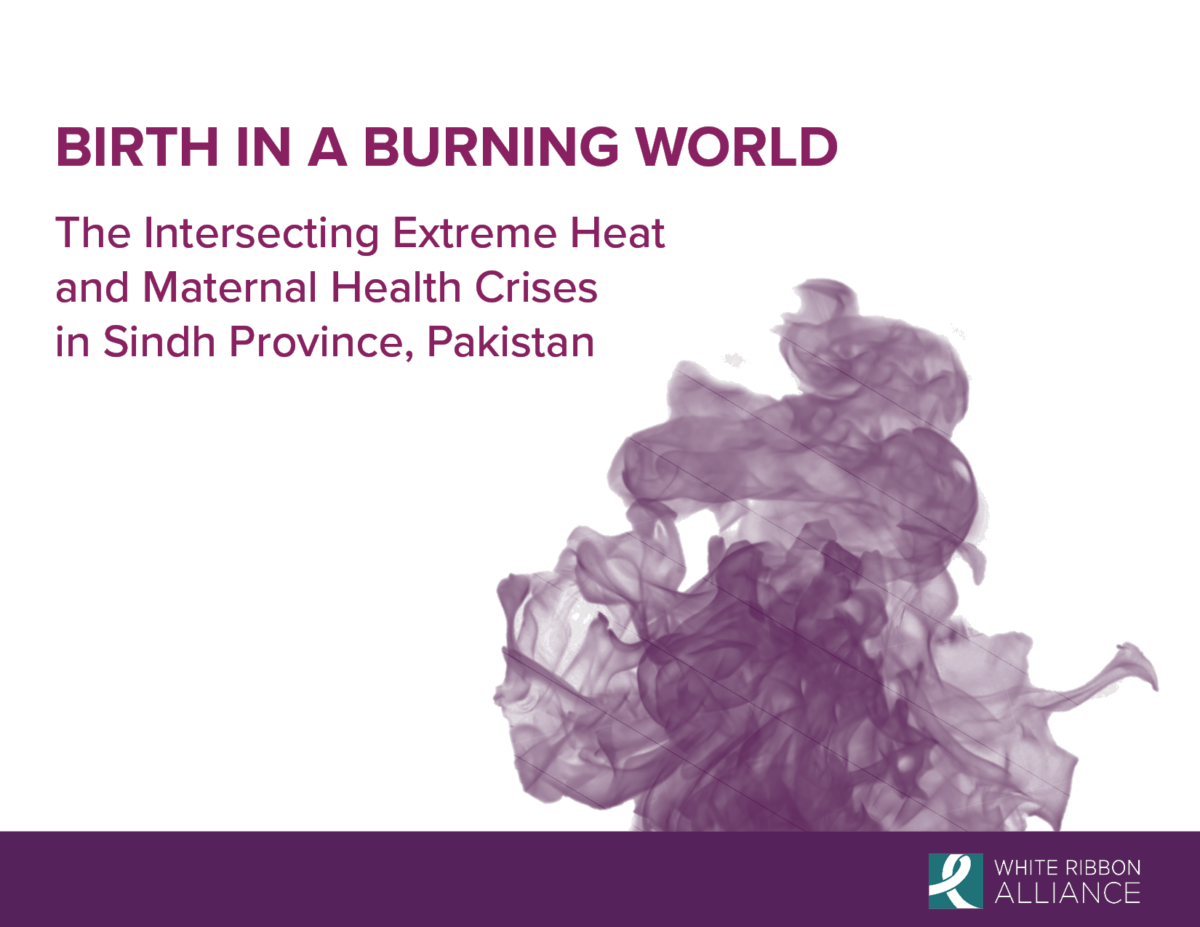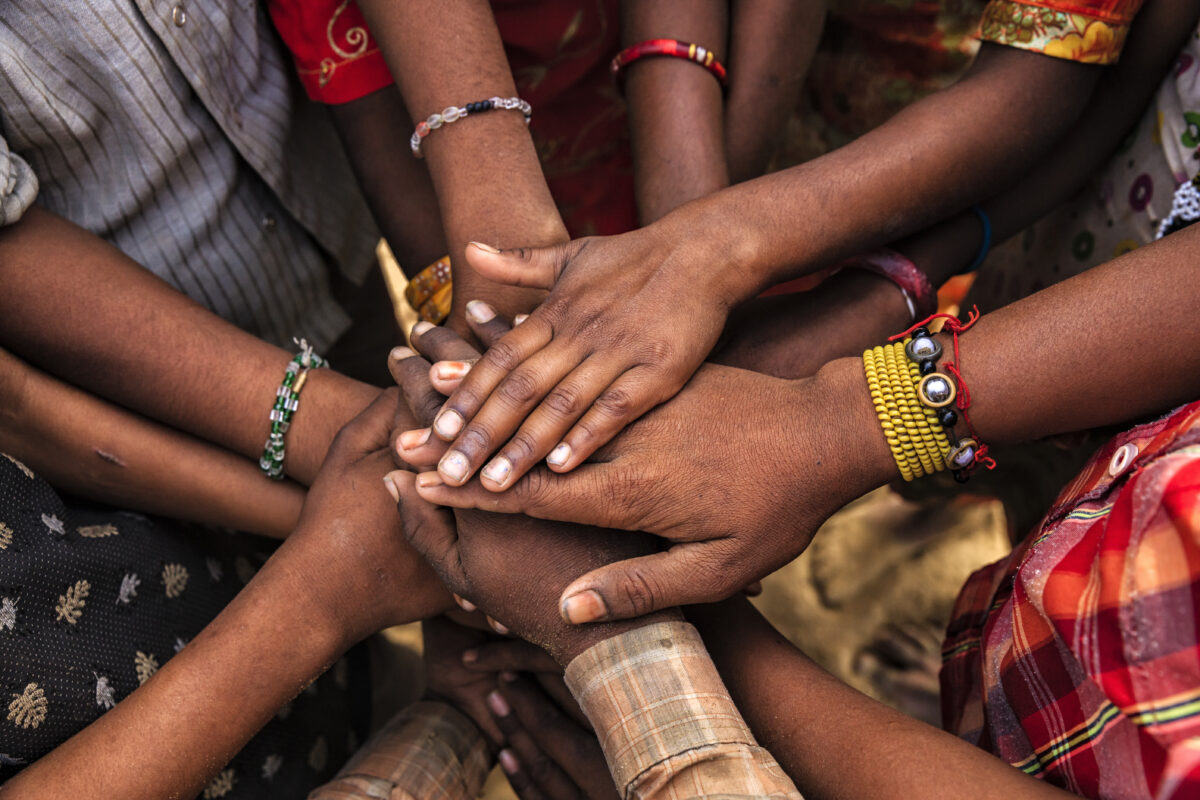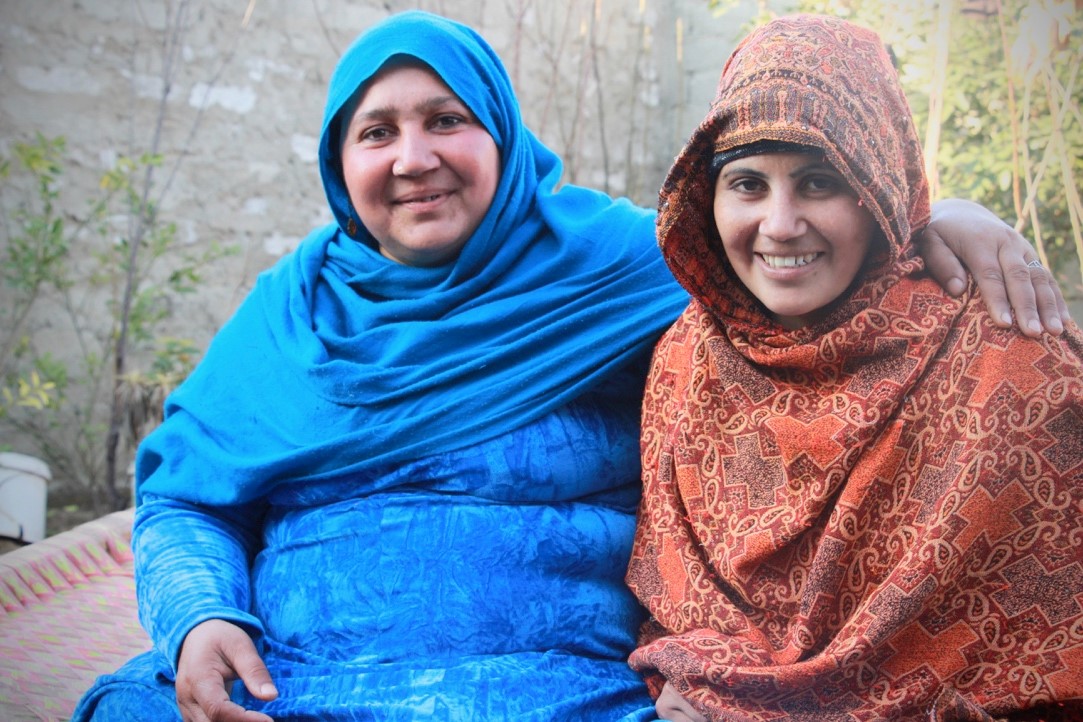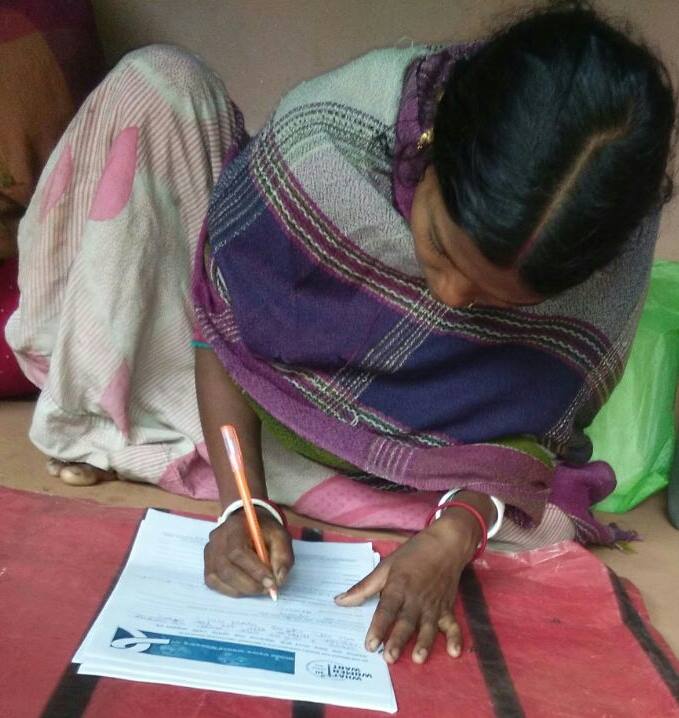Heat exposure linked to preterm birth, still birth, maternal hypertension.
November 9, Washington DC – In the face of a deadly heatwave in Sindh Province, pregnant and postpartum women emphasize the urgent need for governments to prioritise affordable cooling solutions including access to fans, trees, and drinkable water and provide cash support. Climate change is driving deadly day and nighttime temperature hikes in low-income areas like Sindh Province across the world, but little is being done to build protections and maternal and newborn health is still often omitted from climate resilience planning, including in Pakistan.
“Interviewees provided information about being sickened by miserably inescapable heat while pregnant, exhausted by keeping babies cool at night with hand fans, and heat making breastfeeding harder or impossible,” Kristy Kade, White Ribbon Alliance’s CEO said. “Their insights and recommendations for action are relevant globally and countries and companies responsible for the climate crisis owe worst-hit communities maternal health systems that are fit for heat waves, mass flooding and other disasters.”
White Ribbon Alliance Global unveiled a report today based on interviews with 16 pregnant and postpartum women in Sindh who endured catastrophic flooding and a deadly heat wave in 2022. Local authorities and experts in extreme heat and maternal health from around the world were also interviewed for the report.
Accounts from pregnant and postpartum women painted a stark picture of their struggles including fainting spells, hospitalization due to dehydration, listlessness, loss of appetite, and the added burdens of managing pregnancy or a newborn alongside demanding agricultural and household responsibilities. Some also shared their fears that extreme heat was harming their developing fetuses. “[The heat] also made me feel bad about being pregnant as my pregnancy experience got more complicated and worse in the recent heatwave,” Hajra Osman, who needed treatment with an intravenous drip while pregnant because of severe dehydration, said.
Epidemiological research has linked extreme heat exposure during pregnancy and adverse outcomes e such as higher rates of infant death, and stillbirth as well as dangerous maternal health complications such as hypertension. Studies have also shown extreme heat disrupts access to healthcare. Rates of premature birth, stillbirth, many pregnancy diseases, exacerbating maternal mortality rates in many countries. The climate crisis threatens deepen these existing inequities within and between countries.
Marginalization of women and the maternal health system has rendered Pakistan’s women and girls especially vulnerable to the climate crisis. The country is already grappling with some of the world’s highest rates of maternal deaths, preterm birth, infant deaths and maternal illnesses, surpassing neighboring countries, save and except for Afghanistan.
“[Heat] is a major problem … it has increased women’s workload as we women are supposed to manage each and every thing.… I feel the heat the most during cooking in the afternoon, especially in making chapatis or rotis, and while working in the field. Sometimes, I want to leave everything behind and just rest, but it’s not possible as we have to feed our children. Therefore, we cannot rest or stop working,” said Fatima Kamran, postpartum and lactating woman
Other key findings from the report include:
- Limited access to cooling for gendered and care work, like cooking over hot fires, collecting water, caring for children and unpaid farm work for the family, is especially dangerous. Patriarchal systems also limit access to cool spaces based on gender: while men have access to cool spaces in public, such as shops or shaded public areas, sociocultural norms continue to restrict women’s ability to enjoy those locations.
- Interviewees complained that extreme heat made them eat less when pregnant or breastfeeding, and they worried this negatively impacted nutrition during pregnancy. All breastfeeding interviewees said extreme heat made breastfeeding harder.
- Interviewees said heat eroded mental health and welling, made them feel miserable and irritable and negatively impacted their relationships with their children, including babies. Extreme heat stole sleep and the opportunity it provides to recuperate. Pregnant and postpartum women were left tired, sweltering, and working through hot and sleepless nights with handwoven fans to manually cool babies and children since frequent blackouts disabled any electric fans.
The maternal health system, including the Lady Health Worker program, community health workers who specialize in pregnancy, need increased support, as do midwives in the country. Public health campaigns are needed to explain the dangers of extreme heat to pregnancy health. All climate mitigation or adaptation plans should prioritize pregnancy and postpartum health, and involve community members, midwives, perinatal community health workers.
“The strength and resilience of the interviewees is notable, but there are limits to what their efforts can accomplish with individual heat coping strategies alone,” Kade said. “Greenhouse gas emissions must be curbed urgently but increases in extreme heat are predicted because of damage already done and action is needed now. “
For more information, please contact:
Dr. Leanne Levers, Acting Director of Advocacy and Communications, White Ribbon Alliance, Kingston, Jamaica, levers@whiteribbonalliance.org, phone +44 7525785682
Skye Wheeler, Senior Researcher, Human Rights Watch, Washington DC, USA, wheeles@hrw.org, WhatsApp/phone +1 646 203 2539




